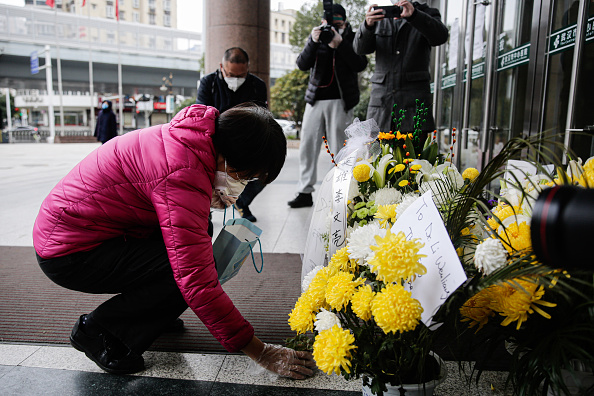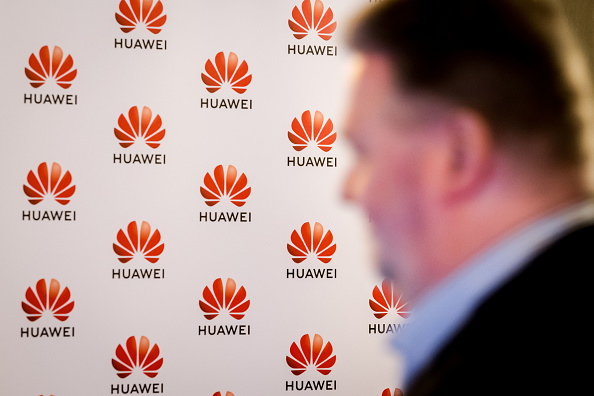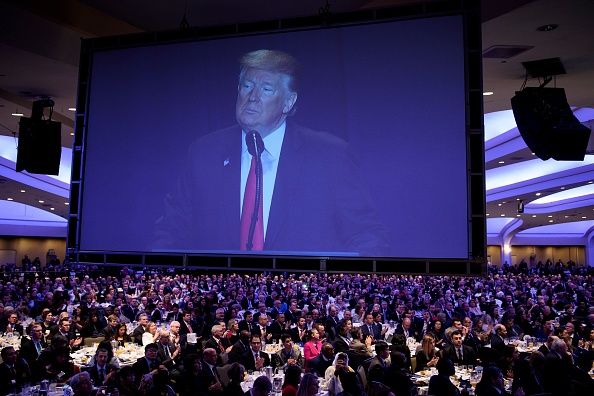
 A Novel Outbreak
A Novel OutbreakWithin the past month, the 2019 Novel Coronavirus has stricken China and the rest of the world, with over 600 deaths and 31,000 confirmed cases. President Xi Jinping has described China's response to the respiratory illness as combatting "a people's war" and has told President Trump that China is sparing no effort to contain the spread of a disease. Hospitals have been built in record time, city-wide quarantines have been put in place, and clinical trials for a vaccine are being tested. Even so, China is receiving backlash over its management of the outbreak, with some criticizing the authorities for acting too slow during the initial stages of the outbreak. Chinese netizens have also taken to social media over the treatment and death of a Wuhan doctor, who died Thursday of the novel coronavirus. The doctor, Li Wenliang, was reprimanded by authorities for "rumor-mongering" after informing his medical school classmates of the spreading virus.
So far, the virus has spread to over 25 countries and territories, and has quarantined two cruise ships in Japan and Hong Kong. Airlines have grounded travel to and from China, with Hong Kong's Cathay Pacific asking staff to take three weeks of unpaid leave and cutting 30% of the airline's services, including 90% of flights to mainland China.
The People's Bank of China has meanwhile freed up funding and cut interest rates in order to soften the impact of the coronavirus on the economy. An additional 150 billion yuan was pumped in to "keep liquidity in the banking system at a reasonably sufficient level in the epidemic control period," with further interest rate cuts expected later this month. China is also asking the U.S. for some respite on delivering trade deal commitments, citing a "flexibility clause" in the event of a natural disaster or other unforeseeable event. Starting on February 14th, China will halve tariffs on $75 billion worth of U.S. imports in order to keep up with its trade deal promises. To maintain economic stability throughout the outbreak, China has a vested interest to keep trade peace with the US at this moment, according to Chen Dongxiao, President of the Shanghai Institutes for International Studies, in his latest piece for China-US Focus.
 5G Tug-of-War
5G Tug-of-WarU.S. House Republicans have introduced a resolution condemning the United Kingdom for allowing Huawei to have limited access to Britain's 5G networks. The Trump administration had heavily pressured the U.K. to ban the company from operating due to espionage concerns, however Huawei has been allowed periphery access to Britain's 5G systems, but not its core networks. The resolution "affirms that all Chinese companies, private and state-owned, are under the effective control of the Chinese Communist party."
Not long after, Vodafone announced the removal of Huawei technology from the core of its European networks following Britain's decision to restrict the Chinese company's role in 5G and new EU guidelines on the firm's equipment. Chinese telecom giants Huawei and ZTE have implored the U.S. Federal Communications Commission (FCC) not to finalize its designation as U.S. national security threats, which Huawei called "unlawful and misguided."
 Breakfast at the Capital
Breakfast at the CapitalThe attendance of Taiwan's vice president-elect William Lai at the U.S. National Prayer Breakfast marked a milestone in U.S.-Taiwan relations this week. The event, hosted by members of Congress in Washington D.C., is an invite-only annual event that gathers business, social, and political elites for discussion and group prayer. Although Lai attended in a personal capacity, the invitation marks the highest-profile visit by a Taiwanese official to visit the U.S. capital since 1979, as Taiwanese officials have been blocked from making official visits to the U.S. While in the U.S., Lai met with Senators Marco Rubio, Jim Risch, Bob Menendez, Cory Gardner, and House Speaker Nancy Pelosi, and made a visit to the National Security Council.
Lai's trip comes at a contentious period in both cross-strait and US-China relations. Just last month, Taiwan voted to reelect pro-independence incumbent Tsai Ing-wen as the President of Taiwan, which Beijing strongly rejected. Days later, China and the US reached a much anticipated limited trade deal, bringing momentary calm to their prolonged trade war.
Despite the trade agreement, Lai's visit to the high profile U.S. event could demonstrate U.S. support for Taiwan according to some analysts. "Vice President-elect Lai's visit is yet another breakthrough in improving U.S.-Taiwan ties under the Trump administration," Sean King, a scholar at the University of Notre Dame's Liu Institute for Asia & Asian Affairs, told the Nikkei Asian Review. "Whether Trump happens to meet Lai this week or not, Beijing will be unhappy either way."
Prepared by China-US Focus editorial teams in Hong Kong and New York, this weekly newsletter offers you snap shots of latest trends and developments emerging from China every week, while adding a dose of historical perspective.
- 2020-01-31 Global Health Emergency Declared
- 2020-01-24 Celebrations Grounded
- 2020-01-17 Signed, Sealed, Delivered
- 2020-01-10 Ink the Deal
- 2019-12-20 A Level Playing Field
- 2019-12-13 It’s a (Limited) Deal!
- 2019-12-06 An Arbitrary Deadline
- 2019-11-22 On or Off Again?
- 2019-11-15 Counterweight Critique
- 2019-11-08 "I haven't agreed to anything"
- 2019-11-01 Don’t Hold Your Breath
- 2019-10-25 Weaponizing Diplomacy
- 2019-10-18 Economic Shudders
- 2019-10-11 A “Big Day of Negotiations”
- 2019-10-04 Birthday Celebrations
- 2019-09-28 A World Split in Two?
- 2019-09-20 Another Round
- 2019-09-13 Olive Branch or Olive Twig?